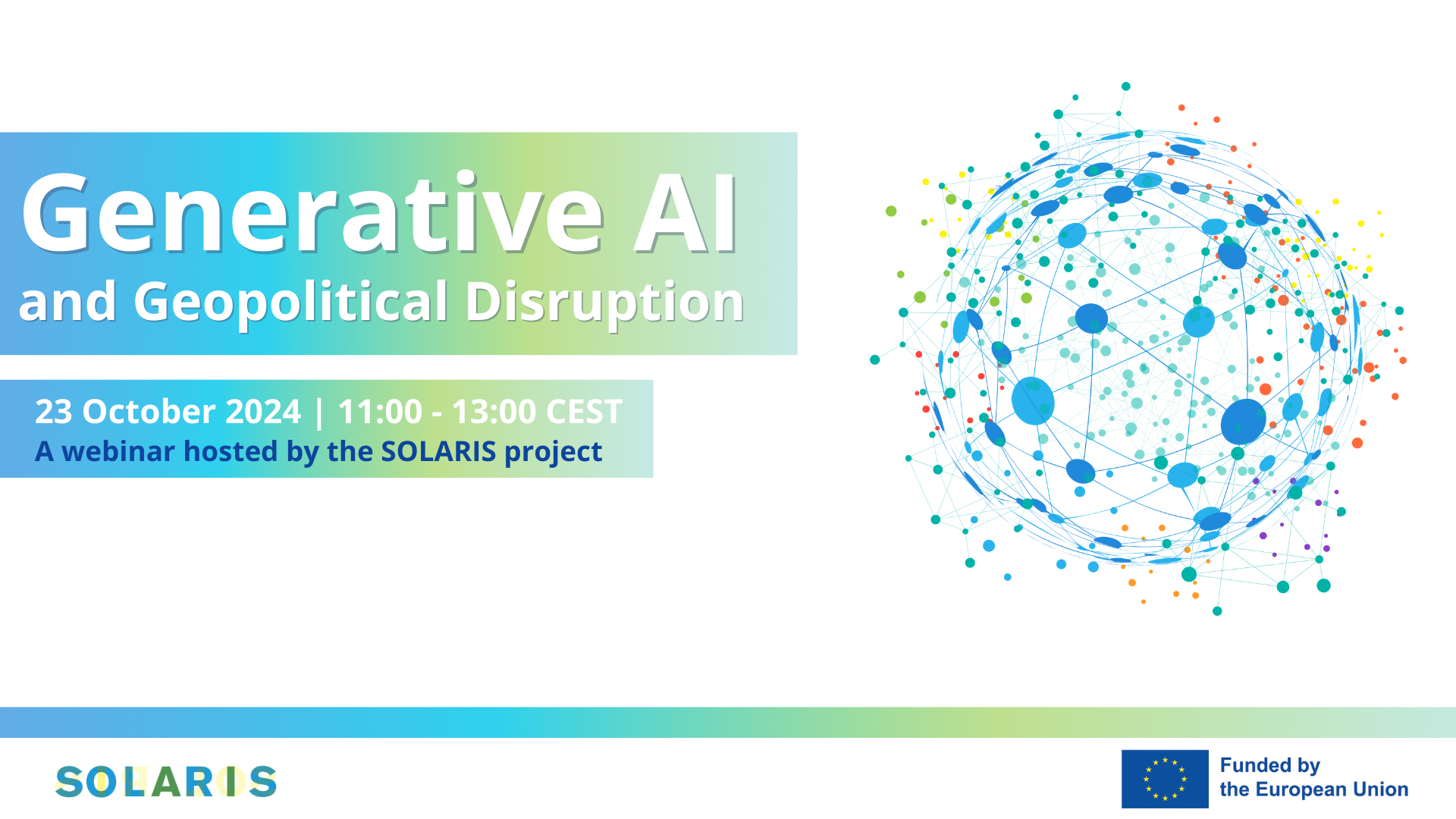SOLARIS online event Generative AI and Geopolitical Disruption

On October 23, 2024, the SOLARIS Project hosted an online event exploring the theme of Generative AI and Geopolitical Disruption. This expert panel brought together voices from academia, policy, and security, focusing on how AI is reshaping global security, international cooperation, and governance. The event highlighted both the opportunities and challenges AI presents for warfare, democracy, and global regulatory frameworks.
AI in Decision-Making: Professor Corneliu Bjola’s Perspective
Professor Corneliu Bjola, professor of Digital Diplomacy University of Oxford used the Yalta Conference of 1945 to illustrate how AI tools like Claude and Gemini can process vast amounts of data to enhance understanding of historical diplomatic strategies. He showed how AI can reveal the strategic thinking of leaders like Roosevelt and Stalin and offer modern insights for contemporary diplomacy. However, Bjola also cautioned against the risks of AI in decision-making, warning about digital colonialism and the need for ethical guidelines to prevent undue influence by AI in political decisions.
Regulatory and Governance Challenges: Insights from Antonio Estella and Dolores Gallera-Sanchez
Antonio Estella outlined the European Union's regulatory framework, focusing on the AI Act’s risk-based approach. He discussed challenges in assigning responsibility for AI misuse, especially in cases like deepfakes. Dolores Gallera-Sanchez further elaborated on the need for a cross-legal approach that integrates data protection and intellectual property laws, stressing the importance of international cooperation to manage AI's global impact on democracy and public trust.
AI and Security: Insights from Peter Pipers and Michael Sinkanel
Peter Pipers, associate professor Cyber Operations, Faculty of Military Sciences, Netherlands Defence Academy, discussed the strategic and legal complexities of AI in warfare and cybersecurity, pointing to the difficulties in applying traditional sovereignty laws to AI’s evolving role. Michael Sinkanel, director of the Austrian Institute for European and Security Policy (AIES), expanded on this by highlighting AI’s use in modern hybrid threats, particularly disinformation and cyberattacks. He referenced AI’s role in the 2022 Russian invasion of Ukraine as a case where AI-driven disinformation amplified conflict, emphasizing the need for balanced regulation to protect election integrity and security.
Legal Complexities and Accountability: Gregory Smith’s Analysis
Gregory Smith from RAND Corporation focused on the legal complexities surrounding AI, particularly the challenges of assigning liability when AI systems cause harm. He pointed to jurisdictional issues arising from the global deployment of AI models, developed primarily by U.S. companies. Smith noted that while the EU’s AI Act is a step forward, more work is needed to address the growing complexity of AI’s integration into daily life, especially in areas like autonomous vehicles and automated labor.
Conclusion: International Cooperation for Responsible AI Governance
The panel concluded with a consensus on the need for both national and international cooperation to address the wide-ranging impact of AI. The discussions underscored the importance of interdisciplinary collaboration and adaptable regulatory frameworks to harness AI's potential while mitigating risks. Overall, the event reinforced the importance of responsible AI governance in shaping the future of international security, law, and diplomacy, ensuring that AI remains a force for positive change.
Watch the full event:

